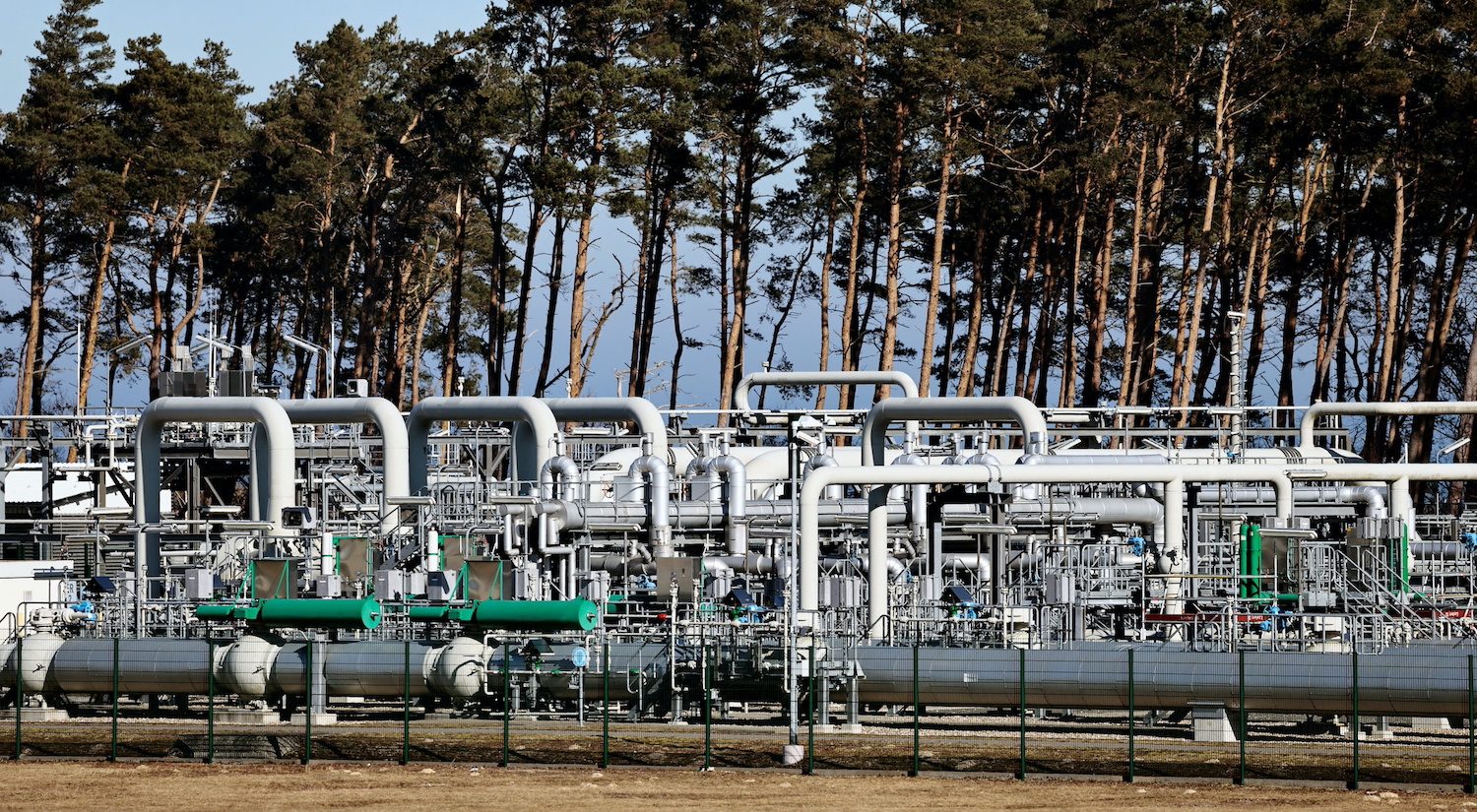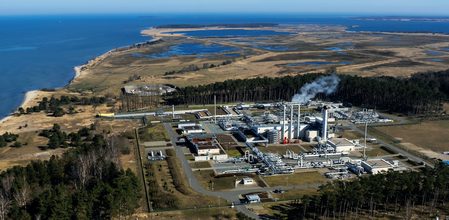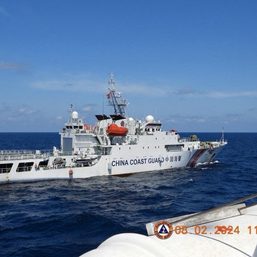SUMMARY
This is AI generated summarization, which may have errors. For context, always refer to the full article.

LONDON, United Kingdom – Europe vowed to stay united against Russia’s demand that they pay for its gas in roubles, as the threat of an imminent supply halt eased on Friday, April 1.
European capitals have been bracing for a disruption to gas imports as Russian President Vladimir Putin seeks retaliation over Western sanctions for the February 24 invasion of Ukraine.
Some buyers and governments were working on ways to potentially pay for gas in roubles as Moscow in recent days has raised the specter of cutting gas supply if its payment terms are not met.
With weeks left before bills are due, governments in Europe, which relies on Russia for more than a third of its gas, are talking to energy companies about Russia’s demand.
However, the European Commission said on Friday that those with contracts requiring payment in euros or dollars should stick to that.
“Agreed contracts must be respected. 97% of the relevant contracts explicitly stipulate payment in euros or dollars. Companies with such contracts should not accede to Russian demands,” a European Commission spokesperson said.
“The EU will respond in a united manner to this latest attempt by Russia to circumvent our sanctions,” the spokesperson said.
The Kremlin said on Friday it would not immediately turn off the taps to Europe as payments on deliveries due after April 1 come in the second half of this month and May.
That message, and signs Europe would take a pragmatic approach, were a relief for markets. Gas prices, which had risen on fears of disruption, fell.
“If things remained like this, all in all not a lot would change,” Italy’s Ecology Transition Minister Roberto Cingolani told state broadcaster RAI.
On Thursday, Moscow decreed that foreign buyers of Russian gas would have to open rouble accounts in state-run Gazprombank from Friday or else risk being cut off.
Analysts said the rouble payment plan, which cements Gazprom’s position at the heart of Russian gas trading, was more about shielding the oil and gas company from future sanctions than depriving Europe of fuel.
Gazprombank has been spared from the harsh sanctions imposed on other Russian banks so European gas buyers could open an account with it and let the lender buy roubles on their behalf. It would have to remain unsanctioned for trade to continue.
Although energy exports are Putin’s most powerful lever against sweeping Western sanctions, his room for maneuver is also limited because Moscow does not have alternative markets for its gas, which is piped to Europe.
“If Putin turns off the gas it might only be for a relatively short period of time, he needs our money and cannot reroute all the natural gas,” one European gas trader said.
Germany, meanwhile, said it was examining Putin’s decree. An economy ministry spokesperson said private contracts were valid and that the country, which depends on Russia for 40% of its gas needs, was paying in euros.
Berlin has already activated an emergency plan that could lead to gas rationing if supplies drop too low.
Gazprom said on Friday it was exiting its business in Germany, although it was not immediately clear how this would affect the supply of Russian gas into Europe’s largest economy.
Price pressure
Putin’s decision to enforce rouble payments has boosted the Russian currency, which fell to historic lows at the start of the invasion, which Moscow calls a “special military operation.” The rouble has since recovered much lost ground.
European buyers are still prepared to buy gas under existing contracts while they seek clarity on Putin’s demand, while Gazprom said on Friday it had started to notify clients of a requested switch of end-payment currency to roubles.
Austria’s OMV and Gazprom have had initial contact regarding paying for gas in roubles as demanded by Moscow, a spokesperson for OMV said on Friday, adding that the company is now waiting for written information.
Denmark’s Orsted, which has a take-or-pay contract with Gazprom running until 2030, said it had received a demand from Gazprom Export to pay for gas supplies in roubles.
“We have no intention of paying in roubles. We are in close dialogue with other energy companies and the authorities regarding a common European response to Gazprom Export,” it said in a statement.
Poland’s dominant gas company PGNiG said it had been formally notified by Gazprom about changes to payment terms for gas supplies.
German utilities Uniper, RWE, and VNG all declined to comment. Italian energy group Edison, which has a contract with Gazprom for 1 bcm of gas per year which expires at the end of this year, also did not comment.
Italy’s Eni said it had received a communication from Gazprom over switching its gas payment currency to roubles, and was analyzing the matter.
European gas prices have climbed as a result of uncertainty over Putin’s plan, with rises of 7% to 10% since his order, coming close to previous peaks.
Relief that the taps would not be turned off any time soon prompted prices to turn negative.
At 1715 GMT, the benchmark front-month contract for May delivery in the Dutch gas market was down 9.37 euros at 111.45 euros per megawatt hour. – Rappler.com
Add a comment
How does this make you feel?




![[ANALYSIS] Why do we pay higher power rates when we have power outages?](https://www.rappler.com/tachyon/2024/07/tl-higher-power-rates-higher-power-outages.jpg?resize=257%2C257&crop=401px%2C0px%2C1080px%2C1080px)











There are no comments yet. Add your comment to start the conversation.